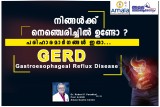Multiple SARS-CoV-2 variants are circulating globally. One among these is the B.1.617 lineage, detected in India earlier this year. Early proof suggests that its sub-lineage B.1.617.2, called Delta variant, is more transmissible than existing lineages.
The World Health Organizaton (WHO), has given it the label ‘Delta ’andhas categorised it as a variant of concern (VOC). Thisis continued to be observed as “significantly raised transmissibility” and many countries reported outbreaks related to this variant.
WHO classifies a variant as VOC when it showed an increment in transmissibility or causeddangerous change in Covid-19 epidemiology. In addition to this,increase in virulence along withdecrease in effectiveness of public health measures, diagnostic aids and vaccines have been taken into consideration.
What makes the Delta variant a VOC?
Different variants are specified by mutationsor alterations in the virus genetic material. An RNA virus, like SARS-CoV-2, is createdfrom 30,000 base pairs of amino acids. Each amino acid is stacked one upon the other like bricks.
A modification in any of those bases causes a mutation, effectively changing the shape and behaviour of the virus. The Delta variant contains several mutations within the spike protein. At least four mutations are vital.
One of these named L452R, had been initially reported in Denmark during March last year. This transformation has lead to increased transmissibilityandis associated with reducedantibody effectiveness as well ascounterbalance by vaccine.
The D614G mutation was first found in the US,following its widespread circulation in Europe. As per the Center for Disease Prevention and Control (CDC), there is a proof that variants with these mutationsspread more rapidly.
Another mutagenic transformation in Delta is T478K. There was a 65% occurrence of this transformation in a variant B.1.1.222. This was first identified in Mexico during last year and was associated with high infectivity.
How effective are the vaccines?
Studies have shown that the accessible vaccines work against variants including the delta variant.The vaccines were defensive for those who got both doses but were less so among those who got one dose.This is the reason why experts say it's vital to be fully vaccinated. Also, making vaccines available is exclusively critical.
What are the symptoms?
According to experts, apart from fewfamiliar symptoms such as fever, cough, weakness,loss of taste and smell in mild COVID infections, the association of the variants has resulted in the development of some new symptoms.
According to the Zoe COVID Symptom Study, headache is the number one symptom followed by sore throat, runny nose, and fever.
As per the study, people who have contracted the Delta Variant experience symptoms that feel more like a bad cold or some funny “off” feeling. People may mistake this for acommon cold, but they are advised to remain at home and get a test to avoidspreading the disease.
What we need to remember?
Vaccinations are anexcellent defensive shield against COVID-19 infection risk. Whereas they may not give total assurance against this deadly disease, they can still reduce seriousness and death rates considerably right now. According to researchers and specialists, the faster we accelerate vaccination and achieve cluster immunity, the better we will be able to reduce future variants.
COVID-appropriate measures, full vaccination, and activeessential preventive measures remain vital to battle the COVID-19 widespread.
Article by,Dr Sajeena





